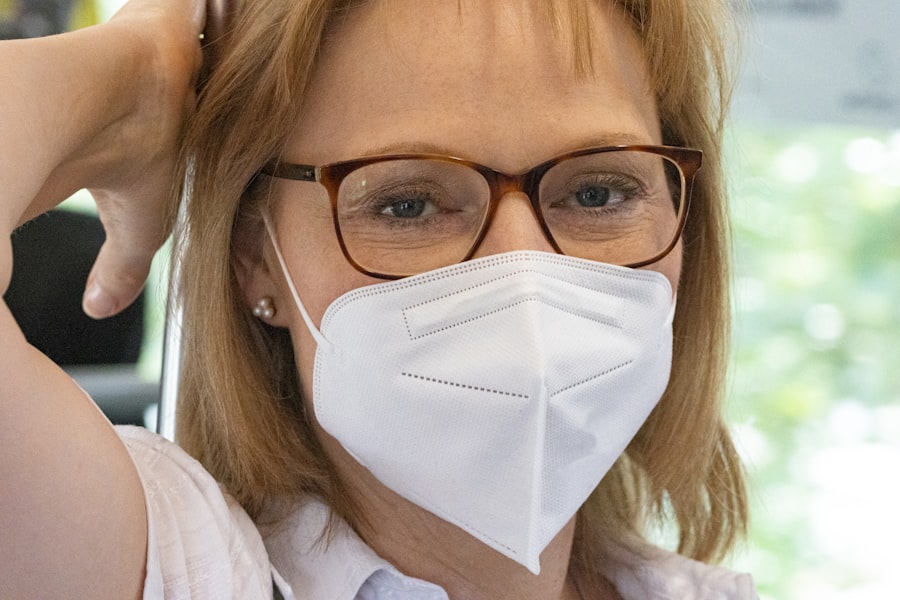Bird flu, or avian influenza, is a highly contagious viral disease affecting all bird species. It is classified into low pathogenic avian influenza (LPAI) and highly pathogenic avian influenza (HPAI). LPAI causes mild symptoms in birds, while HPAI can lead to severe illness and high mortality rates.
The virus spreads through direct contact with infected birds, contaminated materials, and can be carried by asymptomatic wild birds. For chickens, bird flu poses significant risks, as it can rapidly spread within flocks, causing symptoms such as respiratory distress, decreased egg production, diarrhea, and sudden death. Severe outbreaks may require culling entire flocks to prevent further spread.
The economic impact on poultry farmers can be substantial, including trade restrictions and loss of market access for poultry products. Poultry farmers must understand the risks associated with bird flu and implement proactive measures to prevent its spread. This includes adopting effective biosecurity practices, staying informed about the latest developments in prevention and management, and promptly detecting and reporting any signs of illness in their flocks.
By taking these precautions, farmers can better protect their chickens and livelihoods from the devastating effects of bird flu.
Table of Contents
- 1 Implementing Biosecurity Measures on Your Farm
- 2 Monitoring and Reporting any Signs of Illness in Your Flock
- 3 Vaccination and Preventative Measures for Bird Flu
- 4 Properly Handling and Disposing of Dead Birds
- 5 Limiting Contact with Wild Birds and Other Poultry Flocks
- 6 Seeking Veterinary Guidance and Support for Bird Flu Prevention and Management
- 7 FAQs
Key Takeaways
- Bird flu poses a significant risk to chickens and can lead to high mortality rates in infected flocks.
- Implementing biosecurity measures on your farm is crucial in preventing the spread of bird flu and protecting your flock.
- It is important to monitor and report any signs of illness in your flock to prevent the spread of bird flu.
- Vaccination and other preventative measures are essential in protecting your flock from bird flu.
- Properly handling and disposing of dead birds is important to prevent the spread of bird flu and other diseases.
Implementing Biosecurity Measures on Your Farm
Controlling Access to the Farm
One of the key biosecurity measures is controlling access to the farm by limiting the entry of unauthorized personnel and vehicles. This can be achieved by installing secure perimeter fencing, gates, and signage to deter trespassers. Additionally, all visitors should be required to follow biosecurity protocols, such as wearing protective clothing and footwear, and using footbaths or disinfectant mats upon entry and exit.
Preventing Contact with Wild Birds
Another important biosecurity measure is preventing contact with wild birds, which are known carriers of the bird flu virus. This can be achieved by keeping poultry houses and feed storage areas secure from wild bird access, as well as using bird-proof netting or wire mesh to cover outdoor areas where birds are kept.
Maintaining Strict Hygiene Practices
Maintaining good hygiene practices, such as handwashing and using disinfectants, can help reduce the risk of disease transmission within the farm. Regularly cleaning and disinfecting equipment, vehicles, and clothing can also prevent the spread of the virus between farms. By implementing these biosecurity measures, farmers can minimize the risk of disease transmission and protect their flocks from infection.
Monitoring and Reporting any Signs of Illness in Your Flock

Monitoring the health of your flock is essential for early detection of any signs of illness, including those associated with bird flu. Regular observation of your birds’ behavior, appetite, and egg production can help you identify any abnormal changes that may indicate a potential health issue. Common signs of illness in chickens include respiratory distress, decreased egg production, diarrhea, lethargy, and sudden death.
If you notice any of these symptoms in your flock, it is important to take immediate action to prevent the spread of disease. In addition to monitoring your flock for signs of illness, it is crucial to report any suspected cases of bird flu to the relevant authorities. Early detection and reporting of disease outbreaks are essential for preventing the spread of the virus and implementing control measures.
By promptly reporting any signs of illness in your flock, you can help prevent the further spread of bird flu within your farm and to other poultry operations in your area. This proactive approach can also help protect the wider poultry industry from the economic impacts of disease outbreaks. Monitoring and reporting any signs of illness in your flock are critical components of effective bird flu prevention and management.
By staying vigilant and regularly observing your birds for any abnormal changes in behavior or health, you can detect potential issues early and take appropriate action to prevent the spread of disease. Prompt reporting of suspected cases of bird flu is essential for implementing control measures and preventing further spread within your farm and beyond. By taking these proactive steps, you can help protect your flock from the risks of bird flu and contribute to the overall health and biosecurity of the poultry industry.
Vaccination and Preventative Measures for Bird Flu
Vaccination is an important tool for preventing bird flu in poultry flocks. There are several types of avian influenza vaccines available that can help protect chickens from infection with specific strains of the virus. Vaccination can be particularly beneficial for high-risk areas or farms with a history of bird flu outbreaks.
However, it is important to note that vaccination alone is not sufficient to prevent bird flu, and it should be used in conjunction with other biosecurity measures and management practices. In addition to vaccination, there are several preventative measures that can help reduce the risk of bird flu on poultry farms. These include maintaining strict biosecurity protocols, such as controlling access to the farm, preventing contact with wild birds, and practicing good hygiene.
Regular cleaning and disinfection of equipment, vehicles, and clothing can also help minimize the risk of disease transmission within the farm. Furthermore, proper management practices, such as separating different age groups of birds and avoiding overcrowding, can help reduce stress and susceptibility to disease. Vaccination and preventative measures are important components of a comprehensive approach to bird flu prevention on poultry farms.
By vaccinating your flock against specific strains of avian influenza and implementing strict biosecurity protocols and management practices, you can reduce the risk of infection and protect the health and productivity of your birds. It is important for poultry farmers to work closely with their veterinarians to develop a tailored vaccination program that takes into account their specific farm conditions and risk factors. By taking a proactive approach to vaccination and preventative measures, farmers can help safeguard their flocks from the risks of bird flu.
Properly Handling and Disposing of Dead Birds
Proper handling and disposal of dead birds are essential for preventing the spread of disease on poultry farms. When a bird dies on your farm, it is important to promptly remove and dispose of the carcass in a safe manner to prevent potential contamination and disease transmission. Dead birds should be handled with care to avoid direct contact with their bodily fluids or tissues, which may contain infectious agents such as the bird flu virus.
When disposing of dead birds, it is important to follow biosecurity protocols to minimize the risk of disease transmission. This may include wearing protective clothing and gloves, using dedicated tools for carcass removal, and avoiding contact with live birds during the process. Carcasses should be placed in leak-proof bags or containers and securely sealed before being transported for disposal.
Depending on local regulations and guidelines, dead birds may be disposed of through burial, incineration, or rendering at an approved facility. Properly handling and disposing of dead birds are critical aspects of biosecurity on poultry farms. By promptly removing carcasses in a safe manner and following biosecurity protocols during disposal, farmers can minimize the risk of disease transmission within their flocks.
It is important for farmers to develop a clear plan for handling dead birds on their farms and ensure that all personnel are trained in proper carcass removal procedures. By taking proactive steps to handle and dispose of dead birds safely, farmers can help protect their flocks from the risks associated with disease transmission.
Limiting Contact with Wild Birds and Other Poultry Flocks

Preventing Wild Bird Contact
Wild birds are known carriers of avian influenza viruses and can transmit the disease to domestic poultry through direct or indirect contact. To minimize the risk of disease transmission from wild birds, it is essential to keep poultry houses secure from wild bird access and use bird-proof netting or wire mesh to cover outdoor areas where birds are kept.
Avoiding Contact with Other Poultry Flocks
In addition to limiting contact with wild birds, it is vital to avoid contact with other poultry flocks that may carry avian influenza viruses. This may include implementing strict biosecurity protocols when visiting other farms or attending poultry exhibitions or events where birds from different locations are brought together. It is important to practice good hygiene practices such as handwashing and using disinfectants when moving between different flocks or locations.
Staying Informed and Taking Proactive Measures
Limiting contact with wild birds and other poultry flocks is essential for minimizing the risk of bird flu on poultry farms. By implementing strict biosecurity protocols and practicing good hygiene when interacting with birds from different locations, farmers can reduce the risk of disease transmission within their flocks. It is important for farmers to stay informed about local avian influenza outbreaks and take proactive measures to limit contact with potentially infected birds or flocks.
By taking these proactive steps, farmers can help protect their flocks from the risks associated with avian influenza viruses.
Seeking Veterinary Guidance and Support for Bird Flu Prevention and Management
Seeking veterinary guidance and support is essential for effective bird flu prevention and management on poultry farms. Veterinarians play a crucial role in helping farmers develop tailored biosecurity plans, vaccination programs, and management practices that address specific farm conditions and risk factors. They can also provide valuable advice on early detection of signs of illness in the flock, reporting suspected cases of bird flu, and implementing control measures.
In addition to seeking veterinary guidance for bird flu prevention, it is important for farmers to establish a good working relationship with their veterinarians. Regular communication with veterinarians can help ensure that farmers stay informed about the latest developments in avian influenza prevention and management. Veterinarians can also provide training for farm personnel on biosecurity protocols, disease recognition, and proper handling and disposal of dead birds.
Seeking veterinary guidance and support is crucial for effective bird flu prevention and management on poultry farms. By working closely with veterinarians to develop tailored prevention strategies and staying informed about best practices for disease control, farmers can reduce the risk of infection within their flocks. It is important for farmers to proactively seek veterinary advice on all aspects of avian influenza prevention and management to ensure that they are well-prepared to protect their flocks from this serious threat.
By taking these proactive steps, farmers can help safeguard their flocks from the risks associated with bird flu and contribute to the overall health and biosecurity of the poultry industry. In conclusion, bird flu poses significant risks to chickens and has serious implications for the poultry industry. Understanding the nature of the virus, implementing effective biosecurity measures, monitoring flock health, vaccination, proper handling dead birds limiting contact with wild birds or other poultry flocks are all essential components in preventing its spread on poultry farms.
Seeking veterinary guidance is also crucial for effective prevention strategies against this highly contagious viral disease that affects all species of birds. By taking proactive measures in these areas, poultry farmers can minimize the risk of infection within their flocks while protecting their livelihoods from this devastating disease.
If you’re looking for more information on keeping your chickens safe from bird flu, you might want to check out this article on how to build an A-frame chicken coop. This resource provides valuable tips on creating a secure and comfortable environment for your chickens, which is essential for preventing the spread of bird flu.
FAQs
What is bird flu?
Bird flu, also known as avian influenza, is a viral infection that primarily affects birds. It can also infect humans and other animals in some cases.
How does bird flu spread to chickens?
Bird flu can spread to chickens through direct contact with infected birds, contaminated surfaces, or through the air. Wild birds, such as ducks and geese, can also carry the virus and transmit it to domestic chickens.
What are the symptoms of bird flu in chickens?
Symptoms of bird flu in chickens can include sudden death, decreased egg production, respiratory distress, swelling of the head, and diarrhea. It is important to note that not all infected chickens will show symptoms.
How can I keep my chickens safe from bird flu?
To keep your chickens safe from bird flu, you can take several precautions such as practicing good biosecurity measures, limiting exposure to wild birds, keeping the coop and surrounding areas clean, and avoiding contact with other poultry flocks.
Can humans get bird flu from chickens?
Yes, humans can get bird flu from infected chickens, especially if they come into close contact with sick birds or their droppings. However, the risk of human infection is generally low, and most cases have occurred in people who work closely with infected birds.
What should I do if I suspect my chickens have bird flu?
If you suspect your chickens have bird flu, it is important to contact your veterinarian or local animal health authorities immediately. They can provide guidance on testing, treatment, and biosecurity measures to prevent the spread of the virus.
Meet Walter, the feathered-friend fanatic of Florida! Nestled in the sunshine state, Walter struts through life with his feathered companions, clucking his way to happiness. With a coop that’s fancier than a five-star hotel, he’s the Don Juan of the chicken world. When he’s not teaching his hens to do the cha-cha, you’ll find him in a heated debate with his prized rooster, Sir Clucks-a-Lot. Walter’s poultry passion is no yolk; he’s the sunny-side-up guy you never knew you needed in your flock of friends!







